The transpersonal is more awe-inspiring, more exciting than the thing we confuse it for.
BEN LERNERShaving is a way to start the workday by ritually not cutting your throat when you’ve the chance.
More Ben Lerner Quotes
-






-





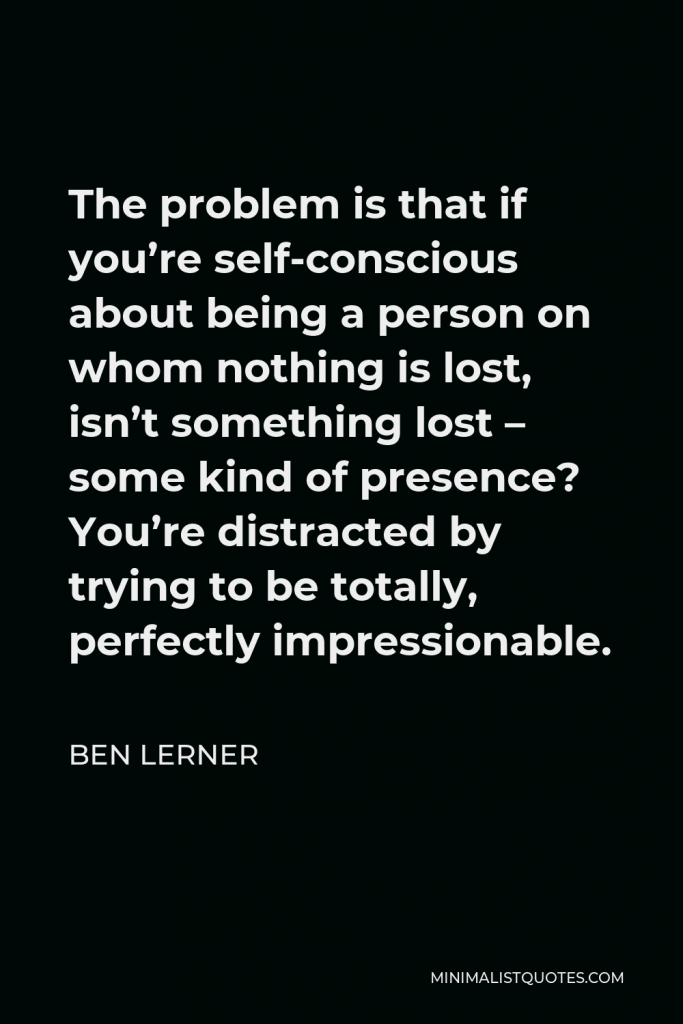

The problem is that if you’re self-conscious about being a person on whom nothing is lost, isn’t something lost – some kind of presence? You’re distracted by trying to be totally, perfectly impressionable.
BEN LERNER -







I didn’t want to write another book about fraudulence.
BEN LERNER -





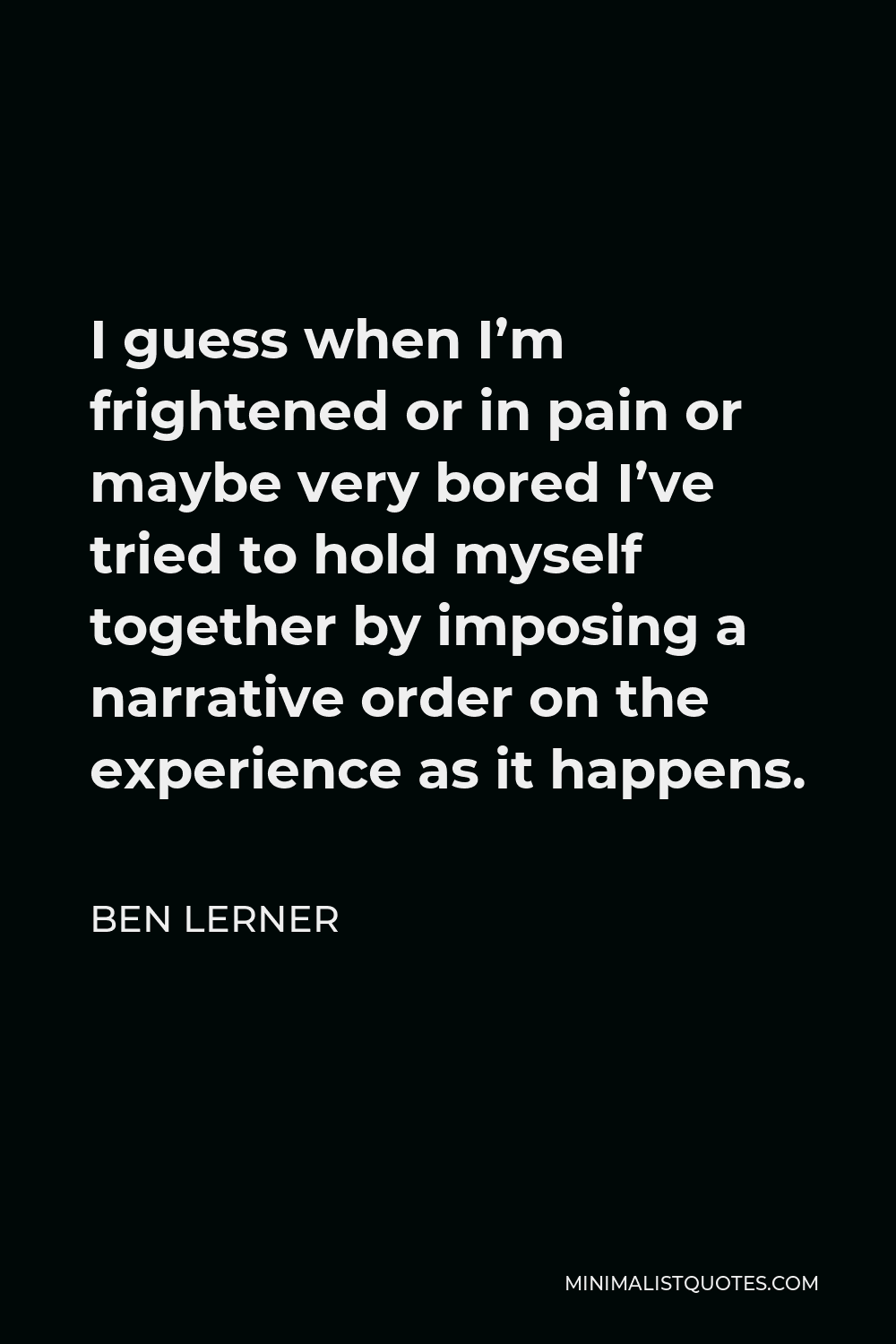
I guess when I’m frightened or in pain or maybe very bored I’ve tried to hold myself together by imposing a narrative order on the experience as it happens.
BEN LERNER -






Art has to offer something other than stylized despair.
BEN LERNER -






Anyway I read more contemporary poetry than contemporary fiction so my mind goes first to a kind of crass “conceptualism” that repeats vanguard gestures of the past minus the politics and historical context.
BEN LERNER -







Most of us start from that position of irony now and what I wanted to do – really felt like I had to do if I was going to write another novel – was move towards something like sincerity.
BEN LERNER -







Maggie Nelson cuts through our culture’s prefabricated structures of thought and feeling with an intelligence whose ferocity is ultimately in the service of love. No piety is safe, no orthodoxy, no easy irony. The scare quotes burn off like fog.
BEN LERNER -






The story and the poem are obviously changed by being placed in the novel, so in a sense they’re no longer the works that preceded the novel.
BEN LERNER -






I wasn’t aware I’d write the novel when I wrote the New Yorker story either. And the narration of their construction in 10:04 is fiction, however flickering.
BEN LERNER -





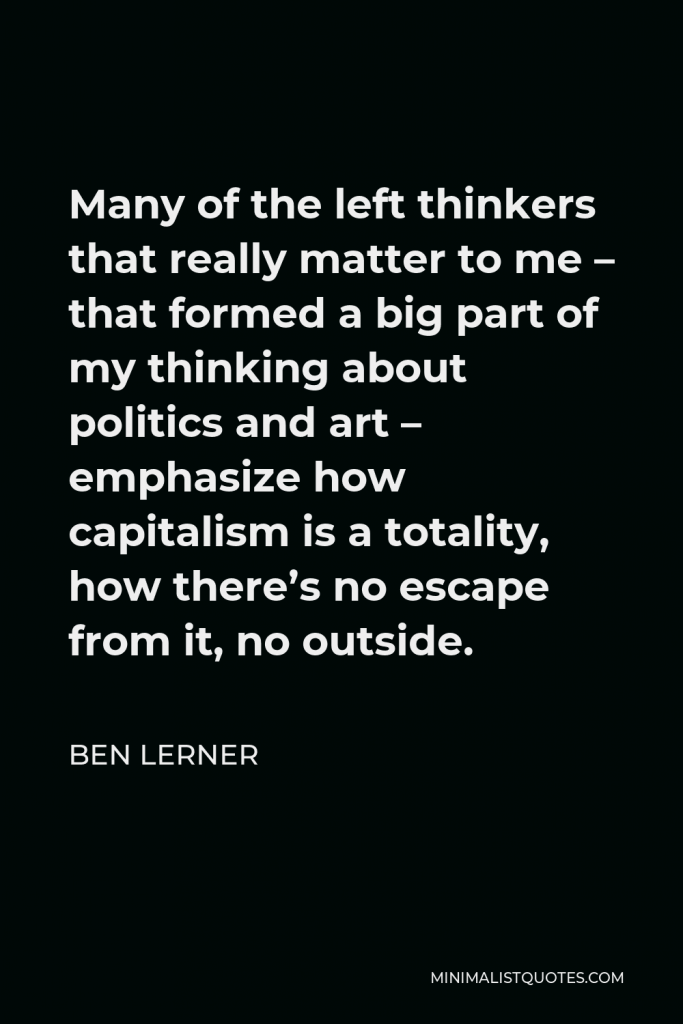

Many of the left thinkers that really matter to me – that formed a big part of my thinking about politics and art – emphasize how capitalism is a totality, how there’s no escape from it, no outside.
BEN LERNER -






Shaving is a way to start the workday by ritually not cutting your throat when you’ve the chance.
BEN LERNER -





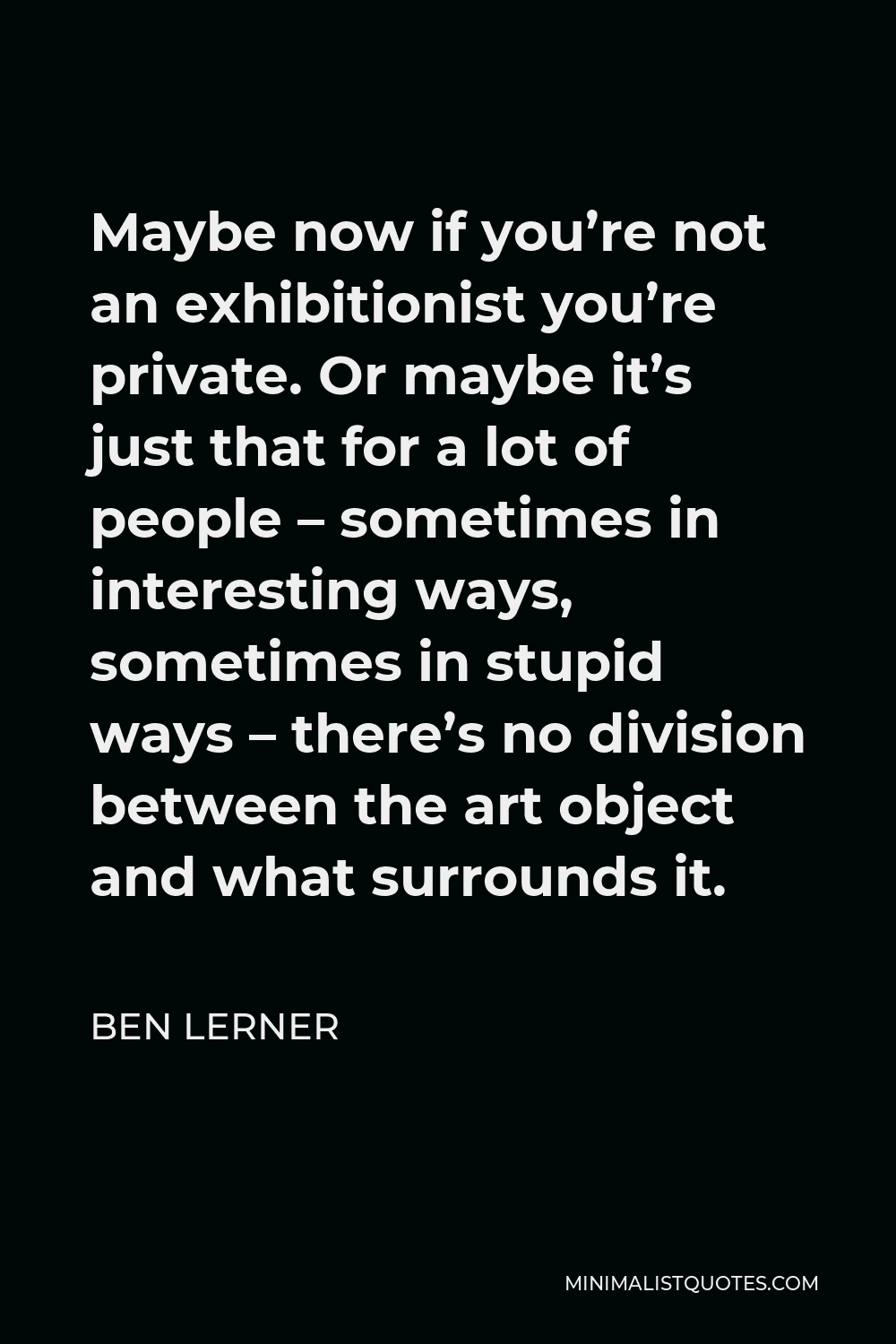
Maybe now if you’re not an exhibitionist you’re private. Or maybe it’s just that for a lot of people – sometimes in interesting ways, sometimes in stupid ways – there’s no division between the art object and what surrounds it.
BEN LERNER -






Few real people appear in my two novels, actually. “Ari” appears on the edge of this book a couple of times – but on the edge, she’s never in it, even if she’s a determining force from the outside. Everybody in the first book was basically made up, if never from scratch.
BEN LERNER -





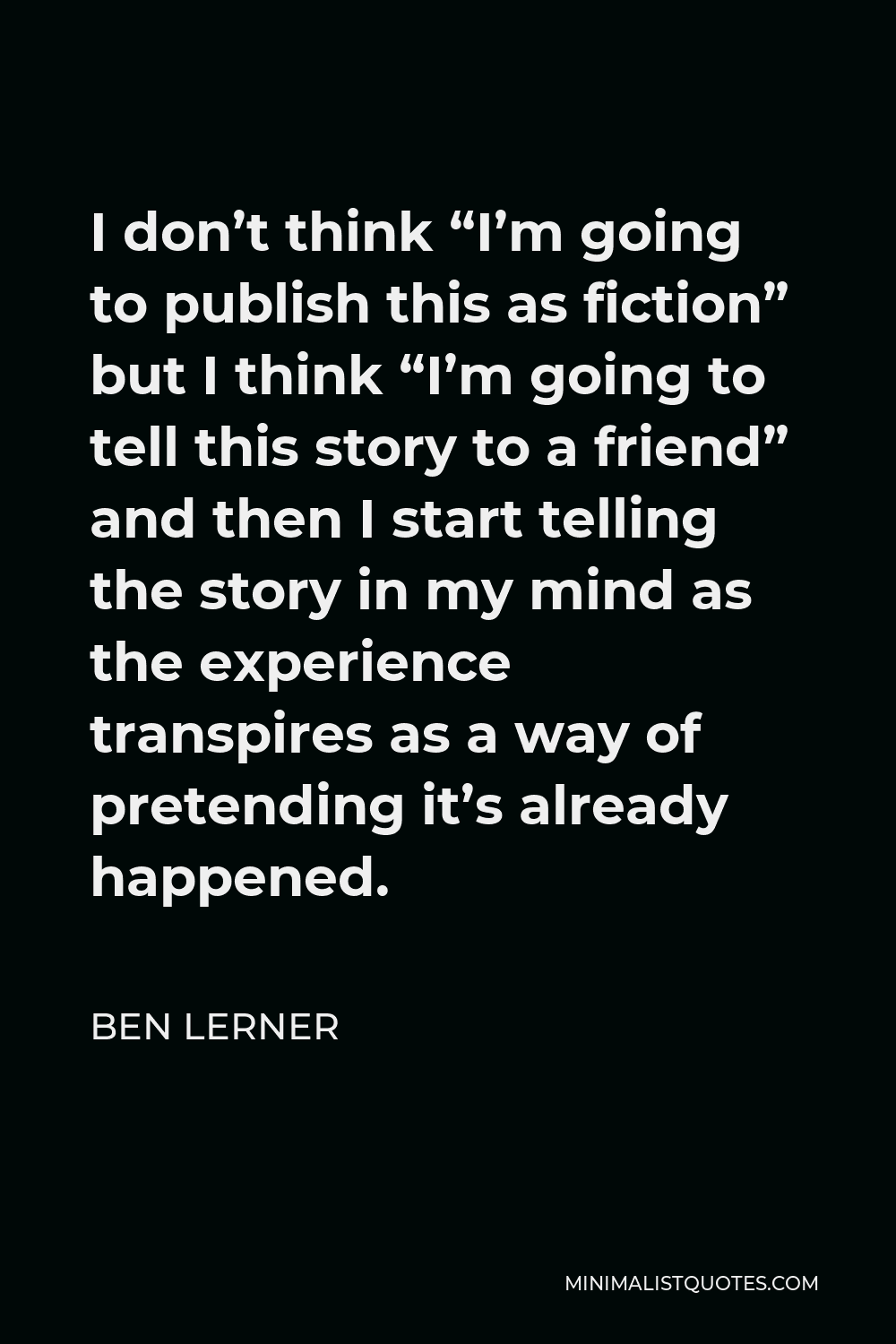
I don’t think “I’m going to publish this as fiction” but I think “I’m going to tell this story to a friend” and then I start telling the story in my mind as the experience transpires as a way of pretending it’s already happened.
BEN LERNER -





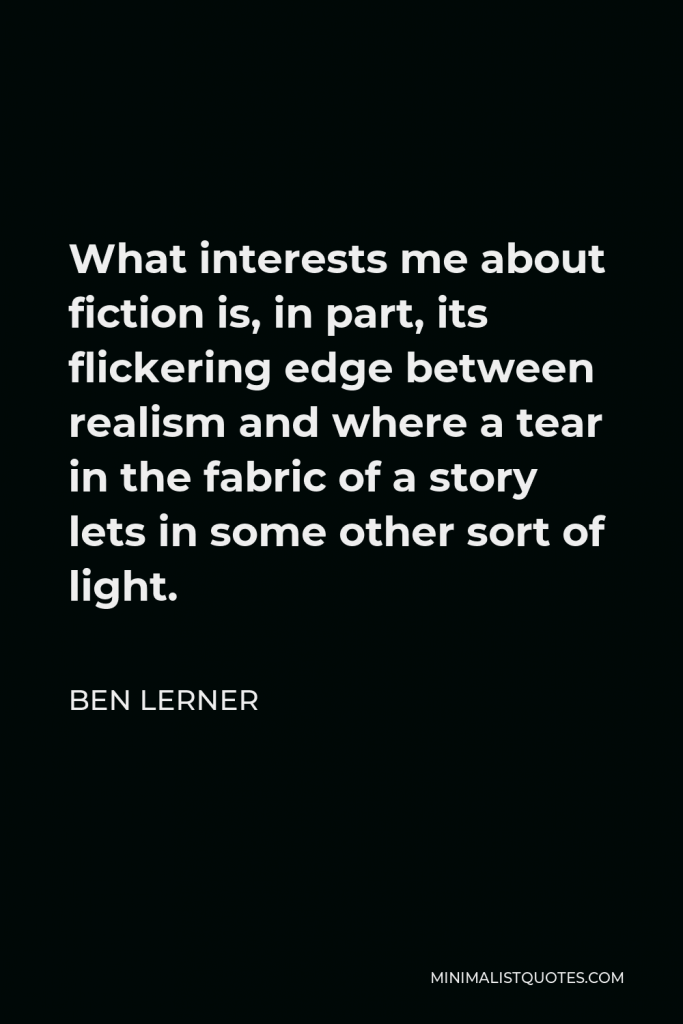

What interests me about fiction is, in part, its flickering edge between realism and where a tear in the fabric of a story lets in some other sort of light.
BEN LERNER






